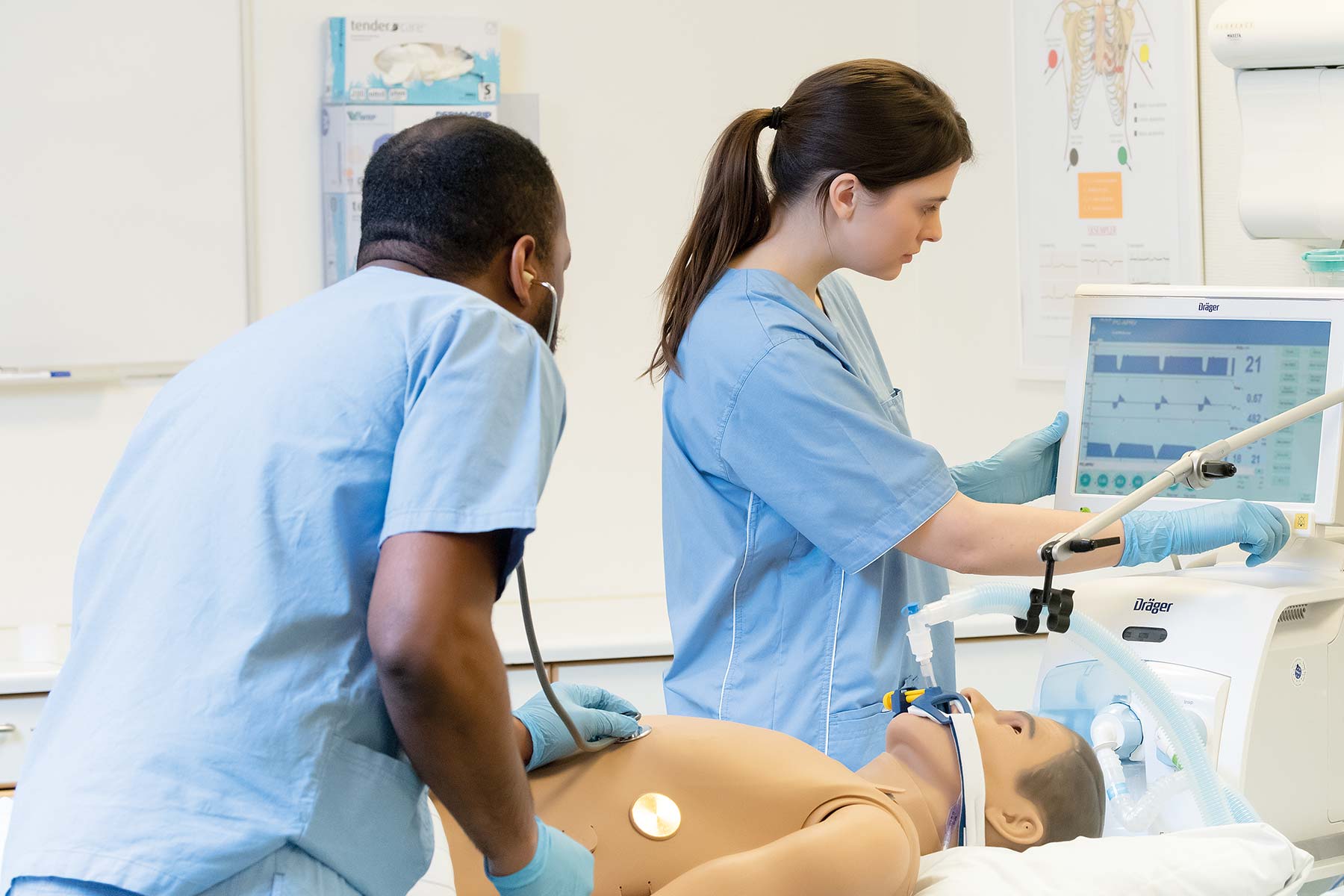
A complete platform for ventilation and respiratory care training
Respiratory Care Solutions
A complete platform for ventilation and respiratory care training.
Use the ASL 5000 Lung Solution to run scenarios with a spontaneously breathing patient simulator supported on a ventilator. Available exclusively for Laerdal’s SimMan portfolio, Nursing Anne Simulator, and SimBaby.
Ventilators are becoming increasingly sophisticated, and each type and brand has multiple options of ventilation modes. Combined with a wide range of respiratory conditions a patient might have, it is even more challenging to ensure clinical competency among clinicians responsible for ventilation management.
ASL 5000 Lung Solution is a breathing simulator intended for high-fidelity ventilation management training in respiratory care, critical care, pulmonology, anesthesia, and emergency medicine. It can simulate any respiratory condition you may encounter, on any ventilator in any mode of ventilation.
This solution enables you to integrate advanced ventilation management training with Laerdal’s SimMan, Nursing Anne Simulator and SimBaby, all controlled with the LLEAP software. ASL 5000 can also be used as a task trainer for ventilator operation, waveform analysis, and equipment onboarding.
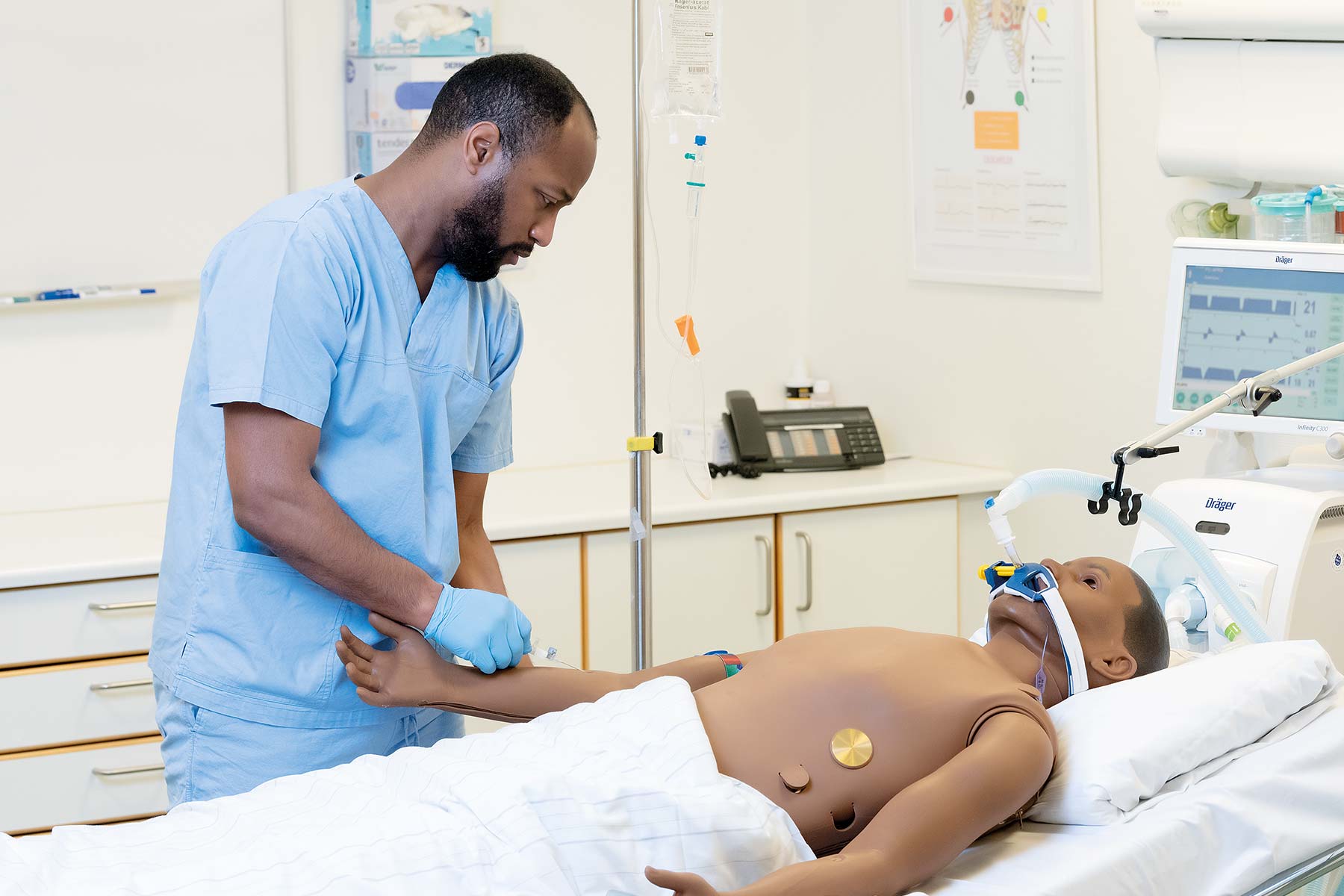
Train without compromise
Advanced ventilation management
Expose your learners to highly realistic interactions on real ventilators such as patient-ventilator synchrony issues, air trapping, ventilator triggering, and evidence of a ready-to-wean patient.
Equipment onboarding
Familiarize staff with advanced ventilators and complex modes to increase competency and proficiency.
Reduce errors
Reduce patients' time on ventilators by practicing ventilation management in a realistic and safe setting. Train your staff to properly diagnose and treat critical conditions that rarely happen.
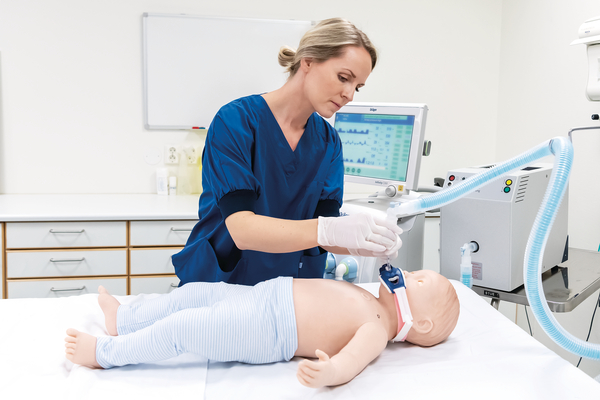
Simulator and task trainer
Made for Laerdal simulators
Replicate all types of respiratory conditions on SimMan, Nursing Anne Simulator or SimBaby. Run it all with Laerdal’s LLEAP simulation software.
Easy implementation
Use ASL 5000 to expand on SimMan, Nursing Anne Simulator or SimBaby’s training possibilities. It seamlessly integrates with both simulator, ventilator and patient monitor for advanced ventilation training.
Simulator and skill trainer in one
Use ASL 5000 as a stand-alone skill trainer by directly connecting it to a ventilator. Or use it for team training and quality improvement initiatives with a ventilator connected to a simulator.
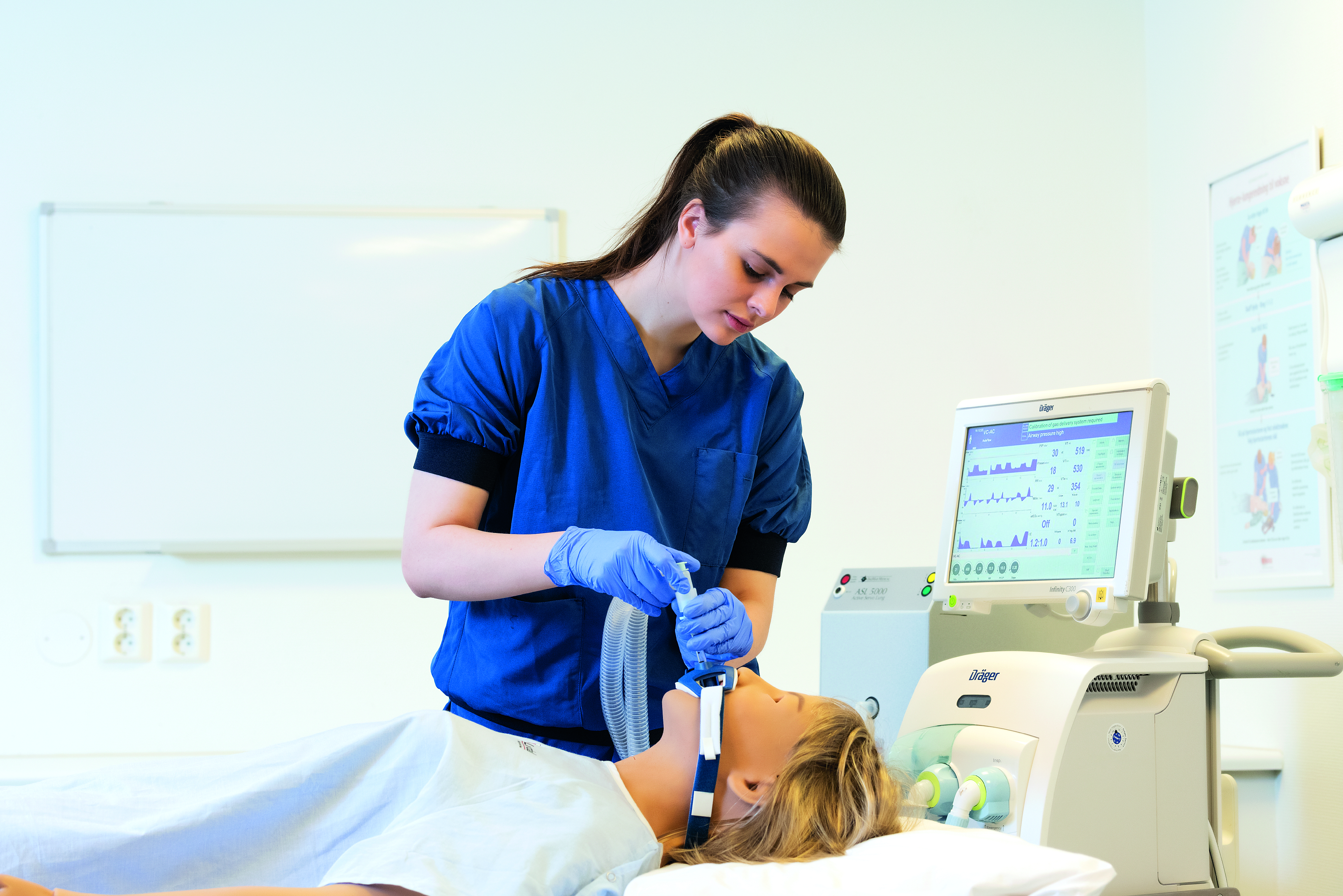
From neonatal to adult simulation
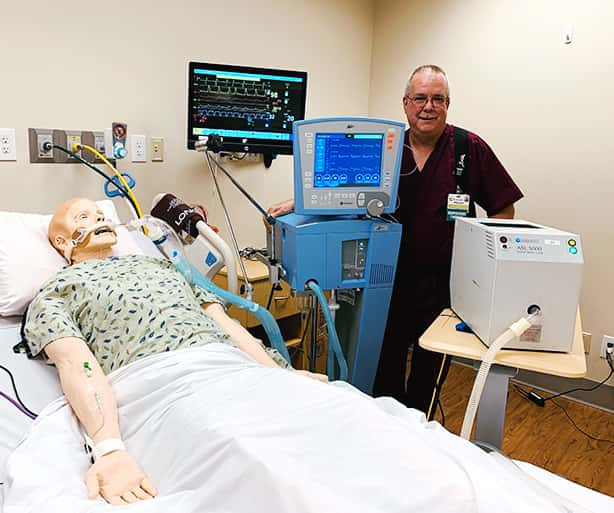
“The ASL Lung Solution is a win-win for everyone and changes the whole education model. It opens up an entirely new avenue for any of the hospital staff to take advantage of this training opportunity.”
Bill Garrison, BS ACCS-RRT RCP
Respiratory Educator
Simulation Lab, St. Elizabeth Healthcare
The ASL 5000™ Lung Solution developed in collaboration with Laerdal, allows you to integrate the world’s most realistic breathing simulator, the ASL 5000™, with Laerdal’s SimMan portfolio, Nursing Anne Simulator, and SimBaby. Use your SimMan, Nursing Anne Simulator or SimBaby to conduct basic to advanced ventilation management training in anesthesia, critical care, emergency medicine, pulmonology, and respiratory care.